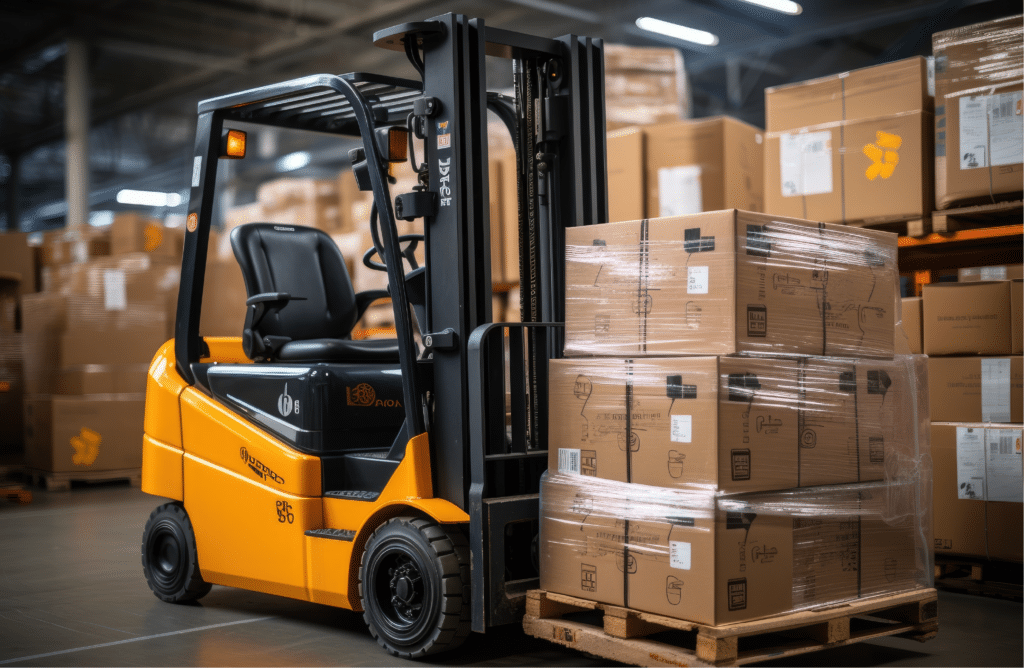
Determining the right battery for your operation is an important decision for motive fleet managers. There are several factors at play like shift schedules, space utilization, power requirements, budget considerations and return on investment.
When it comes to forklift batteries, there is no “one-size-fits-all” solution. Lithium motive power batteries might be the best fit for certain applications, while lead batteries might be better for others. To find the best fit for your fleet’s requirements, it is important to consider the merits of each type of battery solution.
Why Choose Lithium?
Although the upfront cost for a lithium solution may be greater than lead, the return on investment may be worth the tradeoff. Lithium is a good choice if longevity, efficiency, maintenance-free, increased safety and conserving space are requirements for your motive power fleet.
Lithium batteries have greater energy density, providing up to four times that of lead batteries. They deliver more power in a compact package, meaning longer runtimes with fewer charges. Lithium batteries have scheduled charging times, so they help operations move more efficiently by maximizing run time. They also last twice as long as lead batteries and provide over three times the cycle life of a lead battery.
Choosing a lithium solution can streamline motive power operations. Lithium batteries are monitored through a battery management system that tracks temperature, voltage and currents in real-time. Customers can be alerted about potential issues even before they realize there could be a problem.
Lithium batteries reduce the risk of injury during the charging process because they do not need to be removed from the forklift. They also require minimal maintenance compared to the upkeep of lead batteries which also minimizes injury hazards.
Space utilization is another key factor when considering which battery is right for your operation. Only one battery is needed for each forklift when using lithium batteries, which eliminates the need for on-site storage of multiple batteries. This frees up valuable square footage and allows personnel to redirect their efforts toward more productive tasks.
When forklifts are being used around the clock for large-scale operations, a battery that meets requirements for your motive power applications is important. Lithium batteries offer high efficiency, superior productivity, advanced analytical capabilities, and minimal downtime and maintenance.
Why Choose Lead?
Lead batteries have become more advanced to meet the needs of various operations. If forklifts are working around fewer shifts, a lead battery may be more suitable. The additional downtime allows for charging and maintenance.
In motive power operations, lead batteries are a better solution when facilities do not have restrictions on space. And when budget constraints are a factor, lead batteries have a lower upfront investment compared to lithium batteries.
Lead battery solutions are available in a variety of technologies, such as flat-plate, tubular and valve-regulated lead-acid. They are engineered for light, medium or heavy duty lift truck applications. The choice between these depends on run-time, durability, efficiency and maintenance requirements.
Some lead battery technologies are lower maintenance with quarterly watering intervals instead of weekly. Other solutions are compatible with intelligent chargers to optimize charge output based on real-time battery feedback.
Making a Data-Driven Decision
Customers should consider total cost of ownership and return on investment when determining which battery solution will provide the greatest value for their specific operation. Energy performance management software, such as Stryten Energy inCOMMAND™, facilitates informed decisions. inCOMMAND leverages real fleet data so that multiple motive power options can be compared, enabling the best solution to be designed for each unique environment.
Stryten Energy is a “one-stop-shop” for the material handling industry, providing a range of advanced lead and lithium batteries, as well as intelligent chargers. Utilizing inCOMMAND to conduct power studies, we help our customers use data to determine which battery solution is the best fit for their motive power fleet.
Click here to learn more about how inCOMMAND can help you make the best decision.







